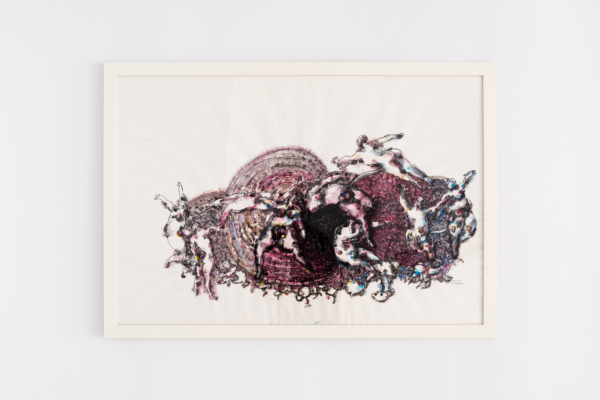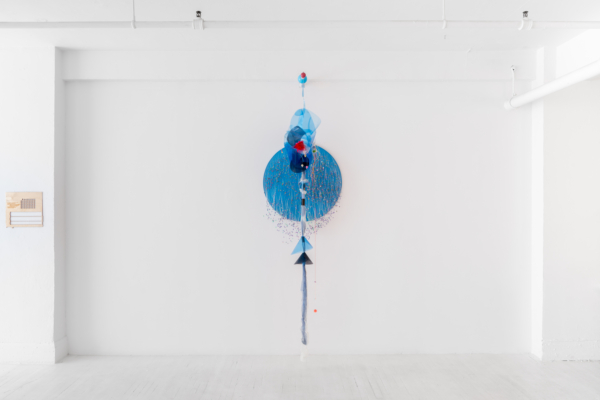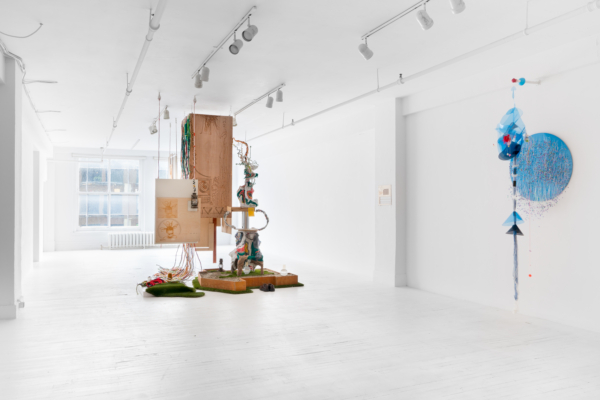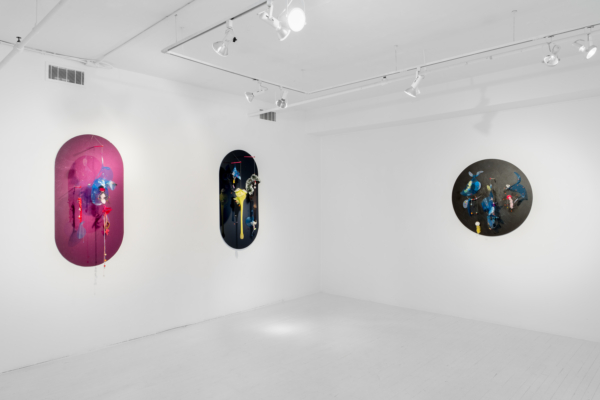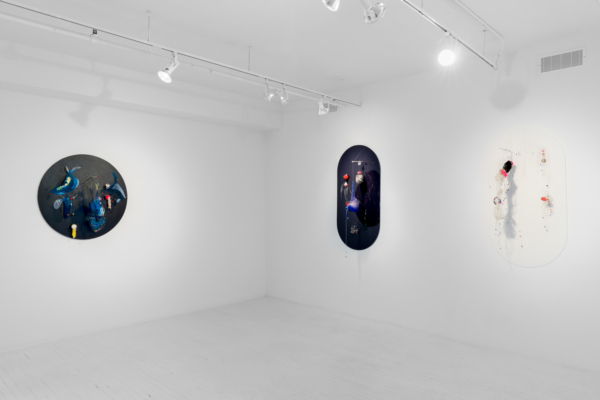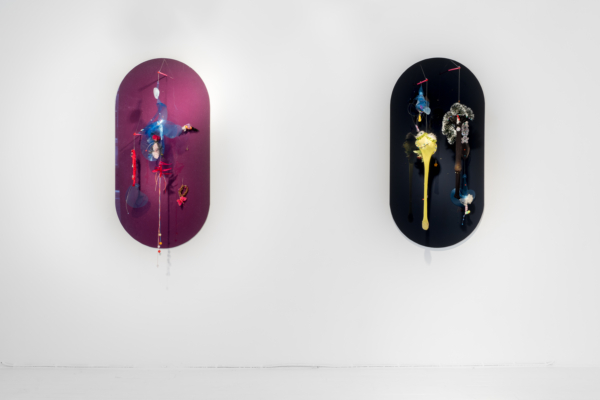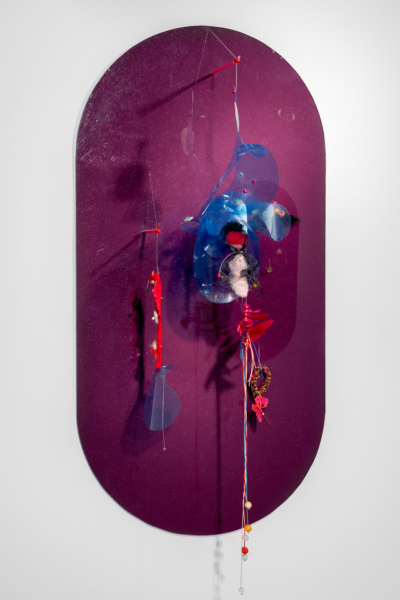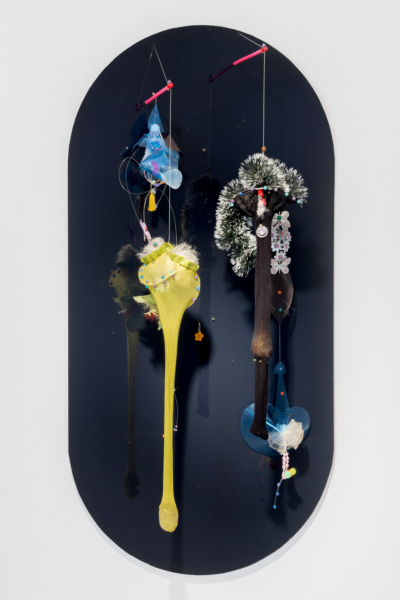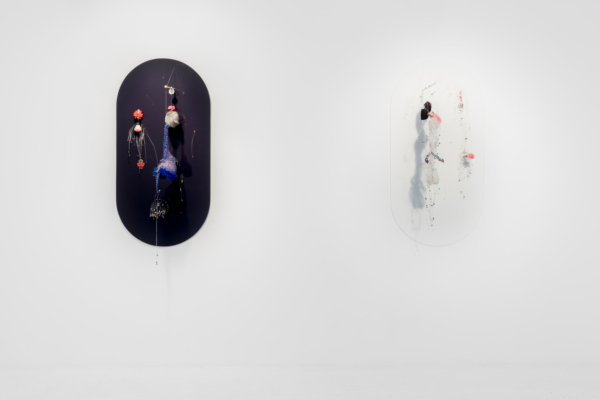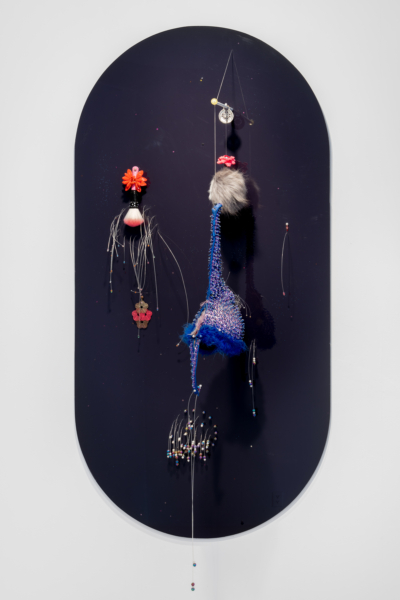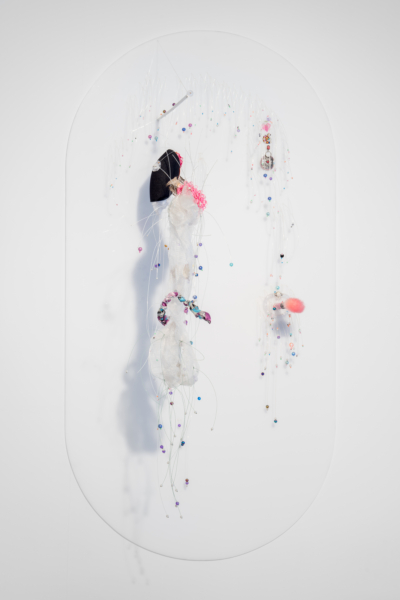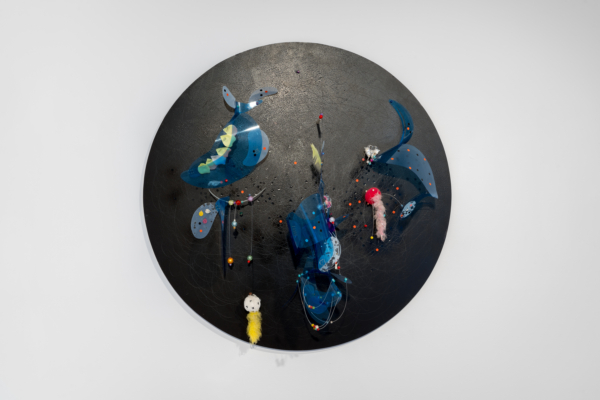Le vivant passage par le féminin
- Ernest Breleur
-Gallery II-
Le Vivant passage par le féminin
From One Continent to Another.
For this first edition of Afflux Black Transnational Biennial, our partner CIRCA art actuel presents Ernest Breleur and Ifeoma Aneaji from the French Caribbean (Martinique) and Nigeria respectively.
These two artists, although having different identities and experiences, perfectly express the following part of the curatorial statement: “Whatever one’s place of departure or arrival, the passers of worlds carry emotional and cultural material that filters their perceptions of crossing borders. This material simultaneously affects the way they perceive themselves and the way they are perceived. In return, they seed their host land with exogenous cultural imagination that enables the rethinking or reinventing of local identities.” Indeed, Ernest and Ifeoma are “passers,” in that they take a look at what passes between the worlds and how it affects them.
A prominent figure in contemporary art in the Caribbean, Ernest Breleur lives and works in Martinique. He is undoubtedly the most experienced artist in the biennial. The Living, Passage Through the Feminine, from his most recent series, is a reflection on existence and our passage between worlds. He tells us, using a simplicity of technical means and objects from the feminine world, such as beads, feathers and trinkets of all kinds, that nothing is lost, everything is transformed, and that he creates something in the nature of a body made up of innumerable biological materials. Moreover, the work speaks to us about all these passages embedded in each other until we are unable to imagine a beginning. How many worlds and passages does it take to make a world?
In the autumn of his life, he offers us a fascinating view of life, his life, but also a poetic look at the world’s passers-by, the women. Although he may be an artist jealous of power that his sex cannot give him, his visual poems wisely invite us to take note of the obvious: whether biological, cultural, vegetable or mineral, what is important is the encounter, because without this, there is no birth or passage.
Ifeoma Aneaji describes herself as a Nigerian neo-traditional artist born in Benin City, who lives and works in Montreal. She is currently a doctoral student in fine art at Concordia University.
Her work looks at, among other things, the idea of material waste linked to our consumerist societies. An idea imposed on the rest of the world, or a cultural fact specific to the West and useful only for its own development. Thus, she questions the passage of her Nigerian culture to a globalized society, and also the erosion of so-called traditional practices when faced with the exogenous ideologies linked to modernity. She reminds us that when cultural material passes from one culture to another, there is a loss of value, information and partial assimilation. In the case of plastic waste, there is no loss of value, information or possible assimilation, just indigestible waste. Ifeoma proposes the concept of Plasto-art to try to digest this waste which in itself is a non-sense in its Igbo cultural legacy.
She uses traditional weaving techniques to try to reweave an in-between object that both parties can digest. Hence through an almost living form, her works give back value to the unassimilable artificial material. And for good reason, the random format of her work is reminiscent of a digestive organ with its convolutions and eruptive growths. Ifeoma’s work thus becomes a bridge between worlds, even with an element as harsh as plastic.
From one continent to another and from one culture to another, Ifeoma Aneaji and Ernest Breleur seed our imagination and simultaneously affect the way we apprehend existence and its supposed waste.
Eddy Firmin, Artist-Researcher
Curator of Af-flux, Biennale Transnationale Noire
Author biography :
Born and bred in the French Caribbean (Guadeloupe), Eddy Firmin is an artist-researcher, speaker, who lives and works in Montréal (Canada). He holds a PhD in Arts Studies and Practices from the Université du Québec à Montréal (Canada) and a master’s degree from l’École Supérieure d’Art et Design le Havre-Rouen (France). He coordinates the publication of the decolonial magazine Minorit’Art. His visual artwork questions the transcultural logics of his identity and the power imbalances at play. On a theoretical level, he works on a Méthode Bossale, a proposal for the decolonization of the imaginary in art.
Artist biography :
Press Review

